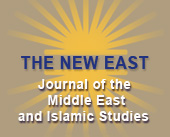Between Islam and the West: Sufi Tradition in the Face of the Challenges of Globalization
Itzchak Weismann
Modernization in the Muslim world has deeply affected Sufism. In the pre-modern period, renewal and reform in Islam was led by Sufi brotherhoods that strictly adhered to the shari'a and engaged in affairs of society and state. Western modernity, with its secular, rationalist and commercialized streaks challenged the mystical tradition of faith, experience and esoteric teachings. Still, many shaykhs were able to preserve their legacy by allying with the principal agents of modernity: the state and the middle class, nationalism and even Islamic fundamentalism.
This article examines the impact of the ongoing process of globalization, with its dialectics of time and place, on Sufism's standing in the last decades. It shows that, in Muslim countries, many shaykhs tend to conceal the Sufi elements in their identity and re-invent themselves as political organizations, social and cultural associations and occasionally Islamic movements. On the other hand, they do not hesitate to use the most advanced media, including the internet, to propagate their way in the public sphere. Among the Sufi shaykhs in the West, by contrast, some seek to keep the Muslim immigrant communities apart while others prefer to adapt and are absorbed to some extent or another into the syncretistic culture of the New Age.

